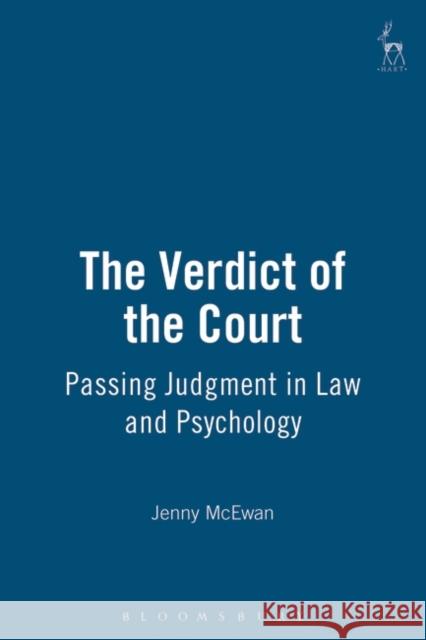The Verdict of the Court: Passing Judgment in Law and Psychology » książka
The Verdict of the Court: Passing Judgment in Law and Psychology
ISBN-13: 9781901362534 / Angielski / Twarda / 2003 / 231 str.
Courts are constantly required to know how people think. They may have to decide what a specific person was thinking on a past occasion; how others would have reacted to a particular situation; or whether a witness is telling the truth. Be they judges, jurors or magistrates, the law demands they penetrate human consciousness. This book questions whether the arm-chair psychology' operated by fact-finders, and indeed the law itself, in its treatment of the fact-finders, bears any resemblance to the knowledge derived from psychological research. Comparing psychological theory with court verdicts in both civil and criminal contexts, it assesses where the separation between law and science is most acute, and most dangerous.











